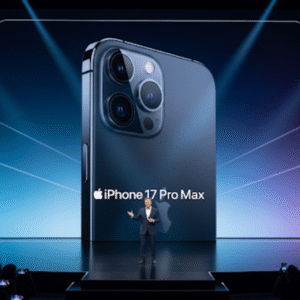Introduction: Why Facebook Still Matters for Business Growth
When it comes to digital marketing, many business owners immediately think about Instagram, TikTok, or even LinkedIn. Yet, Facebook continues to dominate the social media space with over 3 billion active users worldwide. Despite being one of the oldest social platforms, it remains a powerful growth engine for businesses of all sizes—from startups and freelancers to global enterprises.
The reason? Facebook is no longer just a social networking site—it’s a full-fledged business ecosystem. From Facebook Pages and Ads to Messenger bots, Marketplace, and Groups, the platform offers a diverse set of tools to help businesses attract customers, build trust, and drive conversions.
In this article, we’ll break down 10 proven strategies to use Facebook for business growth, combining insights from Meta’s official resources, industry experts, and real-world success stories. By the end, you’ll know exactly how to leverage Facebook for brand visibility, lead generation, and long-term growth.
Understanding Facebook’s Business Ecosystem
Before diving into strategies, it’s essential to understand how Facebook operates for businesses. Unlike a personal profile, Facebook provides professional tools that allow brands to:
- Create Business Pages to showcase their brand.
- Run targeted ads with detailed audience segmentation.
- Engage communities through Groups.
- Sell products directly via Marketplace and Shops.
- Communicate instantly through Messenger.
What is a Facebook Business Page?
A Facebook Business Page is a public profile designed specifically for companies, brands, and organizations. It allows businesses to:
- Share posts, videos, and updates.
- Run ad campaigns.
- Track insights and analytics.
- Engage followers with comments and direct messages.
Difference Between Personal Profile and Business Page
- A Personal Profile is for individuals—it represents you as a person.
- A Business Page represents a company or brand, providing access to ads, analytics, and business tools that personal accounts don’t have.
👉 Without a Business Page, you miss out on professional features like Facebook Ads and Insights, which are critical for growth.
Setting Up Your Facebook Business Page for Success
Creating a Business Page is easy, but setting it up strategically can make the difference between blending in and standing out.
Choosing the Right Page Name and Category
Your page name should reflect your brand clearly. Choose a category that best describes your business—whether it’s Local Business, Online Store, Health & Wellness, or Professional Services.
Optimizing Profile & Cover Photos
Visuals are the first impression. Use your logo as the profile picture and a branded cover photo that conveys your brand’s mission or current offer. Tools like Canva can help you design professional covers.
Crafting a Compelling About Section
The About section should highlight:
- Who you are.
- What you do.
- Why people should trust you.
- A call-to-action (CTA), like “Shop Now” or “Book an Appointment.”
Building a Strong Content Strategy
Content is the backbone of Facebook marketing. To grow your business, you need a balanced content mix.
Types of Content That Work on Facebook
- Educational posts (tips, how-to guides).
- Entertaining content (memes, relatable stories).
- Promotional posts (product launches, discounts).
- User-generated content (customer photos, reviews).
Posting Frequency and Best Times
Consistency matters more than volume. Start with 3–5 posts per week and test engagement. Research shows Wednesdays and Fridays around midday often perform best.
Using Facebook Stories and Reels
With short-form content booming, Stories and Reels are must-haves. They:
- Boost visibility in news feeds.
- Showcase behind-the-scenes moments.
- Highlight promotions in a fun way.
Leveraging Facebook Ads for Business Growth
Facebook Ads remain one of the most cost-effective advertising platforms.
Understanding Facebook Ad Manager
The Ad Manager lets you create, run, and track ads. You can target people based on:
- Age, gender, and location.
- Interests and behaviors.
- Custom audiences (website visitors, email subscribers).
Types of Ads
- Image ads – Simple and eye-catching.
- Video ads – Perfect for storytelling.
- Carousel ads – Showcase multiple products.
- Lead ads – Collect customer details without leaving Facebook.
Targeting the Right Audience
Use Lookalike Audiences to find new people similar to your best customers. Pair this with retargeting ads for visitors who didn’t convert the first time.
Harnessing Facebook Groups for Engagement
Facebook Groups are community-driven goldmines.
Creating Your Own Group
A branded group allows you to:
- Build loyalty.
- Answer customer questions.
- Share exclusive offers.
Engaging in Existing Niche Groups
Join groups where your target audience already hangs out. Don’t just promote—add value through discussions and insights.
Using Facebook Insights & Analytics
You can’t grow what you don’t measure.
Tracking Engagement and Reach
Insights provide data on:
- Post reach.
- Likes, comments, and shares.
- Audience demographics.
Analyzing Ad Performance
Check metrics like:
- Cost per click (CPC).
- Conversion rate.
- Return on ad spend (ROAS).
This ensures your money is spent effectively.
Facebook Marketplace for Business Opportunities
Marketplace is Facebook’s built-in selling platform.
Selling Products Directly
Perfect for small businesses—list items and reach local buyers quickly.
Building Local Visibility
Even if you don’t sell physical products, Marketplace listings boost brand awareness in your area.
Collaborating with Influencers on Facebook
Influencer marketing isn’t just for Instagram.
Partnering with Micro-Influencers
Micro-influencers often have higher engagement and more trust with niche audiences.
Running Joint Campaigns
Collaborate on giveaways, livestreams, or co-branded content to reach wider audiences.
Leveraging User-Generated Content
UGC builds authenticity and trust.
Encouraging Reviews and Testimonials
Ask satisfied customers to leave reviews on your page—they serve as free social proof.
Reposting Customer Stories
Repost user photos or testimonials (with permission). It makes your audience feel valued and boosts credibility.
Facebook Messenger for Business Growth
Messenger is more than a chat app—it’s a sales funnel tool.
Automated Chatbots and Instant Replies
Set up FAQs, appointment booking, or order tracking with chatbots.
Personalized Customer Engagement
Respond quickly to build trust and customer loyalty.
Future of Facebook Marketing
The platform is constantly evolving.
AI and AR Tools on Facebook
Facebook is testing AI-driven personalization and augmented reality ads for immersive shopping.
Integrating Instagram and WhatsApp
Meta’s ecosystem means you can run ads across platforms, manage messages in one inbox, and build multi-channel strategies.
FAQs
Q1. Is Facebook still effective for small businesses in 2025?
Yes! With advanced targeting and free tools like Groups and Marketplace, small businesses can thrive.
Q2. How much should I spend on Facebook ads?
Start small—around $5–$10/day—and scale up as you see positive ROI.
Q3. What’s better: posting frequently or running ads?
Both matter. Posting builds trust organically, while ads drive faster conversions.
Q4. Can I sell directly through Facebook?
Yes. You can sell through Marketplace, Facebook Shops, and integrated e-commerce platforms.
Q5. How do I increase engagement on posts?
Post relatable, high-value content. Use polls, questions, and engaging visuals.
Q6. Should I connect my Instagram and Facebook accounts?
Absolutely. It simplifies ad management and expands your audience reach.
Conclusion: How to Maximize Facebook for Sustainable Business Growth
Facebook remains one of the most versatile and powerful platforms for businesses. By setting up your Business Page correctly, creating engaging content, running ads, leveraging groups, and tapping into Messenger, you can transform casual scrollers into loyal customers.
The key is consistency, strategy, and adaptability. As Facebook continues evolving with AI, AR, and cross-platform integration, businesses that stay ahead of the curve will see the most growth.
If you want to grow your brand in today’s competitive market, Facebook isn’t optional—it’s essential.















